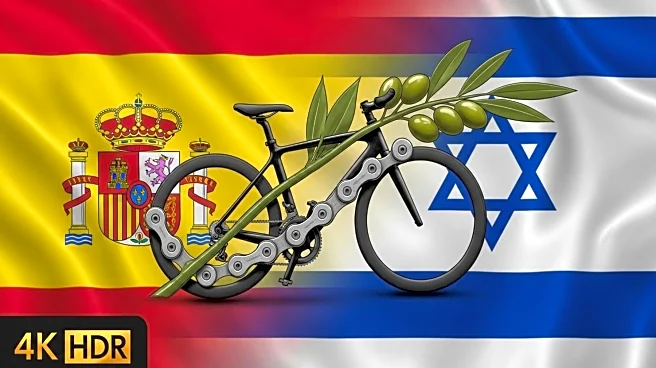What's Happening?
Spanish Foreign Minister José Manuel Albares has expressed support for the removal of the Israeli cycling team from the Vuelta a España race following pro-Palestinian protests. Albares stated that normal relations between Europe and Israel depend on respect for human rights. Despite his support, Albares acknowledged that his government lacks the authority to enforce such a decision. Prime Minister Benjamin Netanyahu praised the Israeli team for not succumbing to threats, while the team announced it would remove its name from jerseys due to safety concerns. The protests are linked to the ongoing conflict in Gaza.
Why It's Important?
The protests against the Israeli cycling team highlight the intersection of sports and international politics. The situation underscores the impact of geopolitical tensions on cultural and sporting events. The removal of the team's name from jerseys reflects the challenges faced by athletes in politically charged environments. The incident may influence future participation of Israeli teams in international events and affect diplomatic relations between Spain and Israel. The protests also emphasize the broader debate on human rights and political expression in sports.
What's Next?
The Israeli cycling team will continue participating in the Vuelta a España race without its name on jerseys, prioritizing safety. The situation may lead to further discussions on the role of sports in political expression and the responsibilities of host countries in ensuring athlete safety. The incident could prompt other countries to reassess their stance on political protests at sporting events. The ongoing conflict in Gaza remains a focal point for international attention, potentially influencing future protests and diplomatic interactions.
Beyond the Headlines
The protests raise questions about the ethical responsibilities of athletes and sports organizations in addressing political issues. The incident highlights the potential for sports to serve as a platform for political expression and the challenges of maintaining neutrality in international competitions. The situation may lead to increased scrutiny of the relationship between sports and politics, influencing future policies and practices in the industry.










